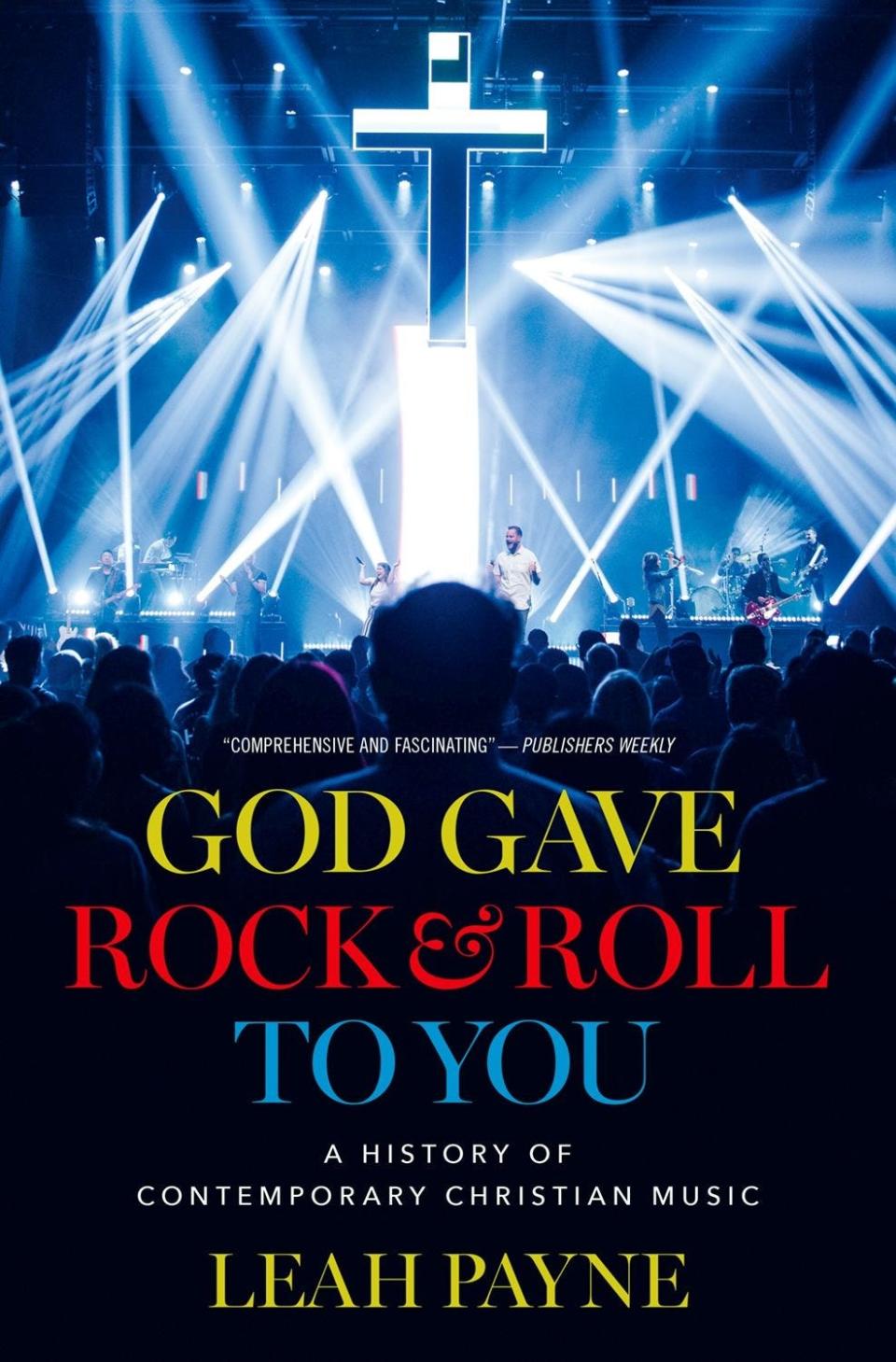How contemporary Christian music helped spread evangelicalism and Nashville’s role in it | Q&A
Just as contemporary Christian music has been critical in disseminating conservative Christian ideals, Nashville is a key exporter of contemporary Christian music.
The story of contemporary Christian music in Nashville in many ways is the story of CCM nationwide.
Religion scholar Leah Payne more fully understood Nashville’s significance in the story of contemporary Christian music when she lived here as a graduate student at Vanderbilt University Divinity School. It planted the seeds for Payne, who’s now based in Oregon, to become a leading expert on the topic and most recently, write a book about it.

Payne’s new book, “God Gave Rock & Roll To You: A History of Contemporary Christian Music,” looks at the 120-year evolution of a genre that became a catalyst for broader religious influence. That influence was a product of and promoter for a predominantly white, male-led evangelical culture.
“As the soundtrack of white evangelical culture, contemporary Christian music carried, in music and merchandise, decades of musical conversations about evangelical identity and ideology,” Payne writes in her book.
Nashville’s Christian music scene particularly stood out for displaying those characteristics, or as Payne once described in the book, “the conservatism of Nashville-based CCM.”
The local Christian music scene still bears that reputation given the presence of major Christian record labels, the Gospel Music Association and its annual Dove Awards, and Educational Media Foundation — the parent company of K-LOVE, Air1 and other Christian media brands that relocated its headquarters to Franklin. But there’s a lot more to the story of Nashville becoming a nerve center for contemporary Christian music, allowing the music to become a tour de force for evangelicalism writ large.
Payne shared more about that local Nashville history and its place in the larger contemporary Christian music story.
This interview has been edited for length and clarity.
Question: What about the history of CCM made Nashville such an important place for the industry?
Leah Payne: I start the book with a couple, John and Eva Green Benson, who went to a camp meeting in the late 19th century in Nashville and saw a fire-and-brimstone holiness preacher. It totally changed their lives. They have this revivalist experience and responded by creating a print publishing company. Their children would go on to carry on the business and create what became Benson Records. There are a lot of different reasons Nashville is important, but I really think those revivals you can’t discount. Because if you look at what CCM is, I think of it as continually adapting and updating that revival moment.
You reference in the book the “conservatism of the Nashville-based CCM.” Culturally, what did Nashville represent within the CCM world?
It’s oftentimes a musical expression of the conservative white Protestants that have thrived in Nashville. For example, the Southern Baptist Convention. I treat it as a conversation to listen to conservative, mostly white evangelicals talk about what they want for their kids. They want them to save sex for marriage, they don’t want them to drink or do drugs, and they want them to have appreciation for the United States. In addition to the political visions, it was also a reflection of the type of revivalism that Baptist, holiness people and Pentecostalists do. For example, altar calls. CCM exported that conservatism way beyond the boundaries of their own community through radio, concerts and merchandise. And it’s about how those movements became the dominant form of evangelicalism.

When did you live in Nashville and how did that affect your understanding of the genre?
I lived there from 2001 to 2008. And anyone who knows anything about the music business, those years were mayhem because the internet was disrupting all music industries and CCM was not exempt from that. I was working in a time when the philosophy that undergirded most of contemporary Christian music — which was "we need to protect young evangelicals, keep them in the church using music as our most valuable aids" — was being called into question. There were all a sudden a lot of changes in evangelicalism and a lot of changes with how people consumed music. I mean at its height it benefited from all these evangelical institutions and parachurch organizations that all work together to create a successful market niche.
Now, how people worshipped has totally changed and the way evangelicals have trained their children has really changed. There were a lot of things that happened all at once that made it to where the niche was hard to recover. There are exceptions, but those exceptions consolidated, and they are serving a smaller and smaller market.
Given these changes you referenced, what’s next for the CCM industry and specifically in Nashville?
There will be generations of people who, regardless of whether contemporary Christian music will be relevant in the future, will still support the music of their childhood. They will serve a market, there’s no doubt in my mind about that. In Nashville, there will still be plenty of people to serve because the future market is still in the worship space. So, Nashville will always play an important role in creating music for churches.
Liam Adams covers religion for The Tennessean. Reach him at ladams@tennessean.com or on social media @liamsadams.
This article originally appeared on Nashville Tennessean: CCM in Nashville: Religious historian on city's importance

